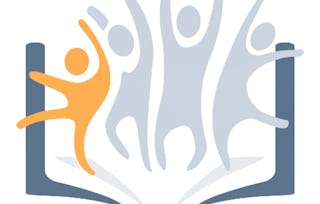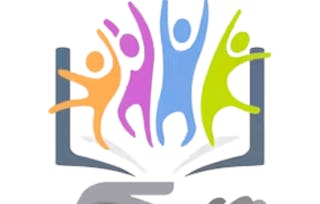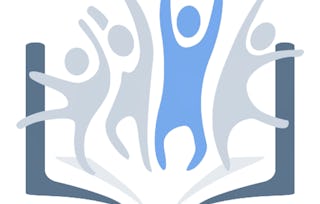Welcome to our next course in the School Health specialization: Managing ADHD, Autism, Learning Disabilities, and Concussion in School. In this course, you will about the most common developmental and behavioral disorders affecting children such as ADHD, autism spectrum disorder, learning disorders, and concussions. We will focus on how schools can support children by recognizing common symptoms and understanding the diagnosis process.

Gain next-level skills with Coursera Plus for $199 (regularly $399). Save now.

Managing ADHD, Autism, Learning Disabilities, and Concussion in School
This course is part of School Health for Children and Adolescents Specialization



Instructors: Eve Kutchman
48,267 already enrolled
Included with
(1,706 reviews)
Skills you'll gain
- Rehabilitation
- Autism Spectrum Disorders
- Neurology
- Special Education
- Clinical Assessment
- Pediatrics
- Disabilities
- School Psychology
- Patient Evaluation
- Psychological Evaluations
- Individualized Education Programs (IEP)
- Diagnostic Tests
- Communication Disorders
- Child Development
- Mental Health
- Mental and Behavioral Health Specialties
- Occupational Therapy
Details to know

Add to your LinkedIn profile
4 assignments
See how employees at top companies are mastering in-demand skills

Build your subject-matter expertise
- Learn new concepts from industry experts
- Gain a foundational understanding of a subject or tool
- Develop job-relevant skills with hands-on projects
- Earn a shareable career certificate

There are 4 modules in this course
In the next few lessons, you will learn broadly about attention-deficit/hyperactivity disorder, commonly referred to as ADHD. We will gain a deeper understanding of ADHD and common diagnoses. You will be introduced to the types of ADHD that exist and common symptoms for each. Next, you’ll explore the specific criteria for the diagnosis of ADHD. Finally, you will review at a high-level treatment therapy and intervention programs – both inside and outside school, as well as medications.
What's included
5 videos6 readings1 assignment
Next up is learning about autism spectrum disorder, the effects it has on children’s social communication skills, and the percent of the population that carry a diagnosis of it. You’ll experience an interview and answer dialogue with Dr. Abigail Angulo, a Developmental-Behavioral Pediatrician at the University of Colorado. You will be introduced to the deficits in children with autism spectrum disorder (ASD). Next, you’ll explore symptoms and diagnosis of ASD. Finally, you’ll review the cause and management of autism.
What's included
4 videos2 readings1 assignment
In the next few lessons, you’ll learn about learning disorders and disabilities among children. You’ll experience an interview and answer dialogue with Dr. Caitlin Walsh, a Psychologist at the University of Colorado. You will be introduced to diagnostic criteria for learning disorders and disabilities. Next, you’ll learn how a diagnosis is made and by whom. Next, you’ll explore specific types of learning disorders in children.
What's included
5 videos2 readings1 assignment
Next up is a learning about concussions and the symptoms children experience. We’ll gain a deeper understanding of the negative impacts of concussions and how they affect a child’s physical, mental, and emotional health. You will be introduced to common symptoms of a concussion and how to identify one. Next, you’ll learn what to do when a child has a head injury or fall while at school. Finally, you’ll explore what happens to Matthew, a child who suffered a concussion during a football game, and how you can help in the management of a concussion.
What's included
4 videos2 readings1 assignment
Earn a career certificate
Add this credential to your LinkedIn profile, resume, or CV. Share it on social media and in your performance review.
Instructors

Offered by
Explore more from Patient Care
 Status: Free Trial
Status: Free TrialUniversity of Colorado System
 Status: Preview
Status: PreviewUniversity at Buffalo
 Status: Free Trial
Status: Free TrialUniversity of Colorado System
 Status: Free Trial
Status: Free TrialUniversity of Colorado System
Why people choose Coursera for their career




Learner reviews
1,706 reviews
- 5 stars
84.47%
- 4 stars
12.24%
- 3 stars
2.46%
- 2 stars
0.46%
- 1 star
0.35%
Showing 3 of 1706
Reviewed on Mar 12, 2023
I love how I was able to work within my time. The videos were very helpful because it helped me to understand all I learnt. The opportunity to retry my assignment was very incredible. Thank you.
Reviewed on Oct 27, 2020
as an occupational therapist, this help me review the basics of ADHD, Autism, learning disorder as well as concussion injuries. I know this would help me a lot in my practice.
Reviewed on Mar 2, 2021
This is the course that could be an avenue for making a difference in the lives of learners with difficulty. Applying what has learned form the course is a great opportunity to serve with a heart.
Frequently asked questions
To access the course materials, assignments and to earn a Certificate, you will need to purchase the Certificate experience when you enroll in a course. You can try a Free Trial instead, or apply for Financial Aid. The course may offer 'Full Course, No Certificate' instead. This option lets you see all course materials, submit required assessments, and get a final grade. This also means that you will not be able to purchase a Certificate experience.
When you enroll in the course, you get access to all of the courses in the Specialization, and you earn a certificate when you complete the work. Your electronic Certificate will be added to your Accomplishments page - from there, you can print your Certificate or add it to your LinkedIn profile.
Yes. In select learning programs, you can apply for financial aid or a scholarship if you can’t afford the enrollment fee. If fin aid or scholarship is available for your learning program selection, you’ll find a link to apply on the description page.
More questions
Financial aid available,






